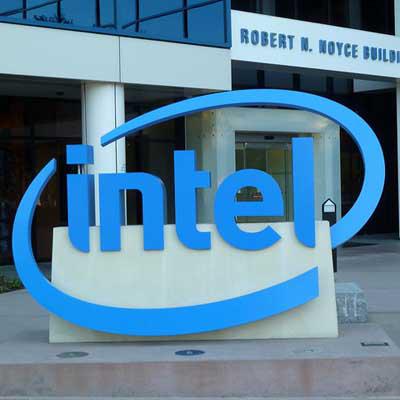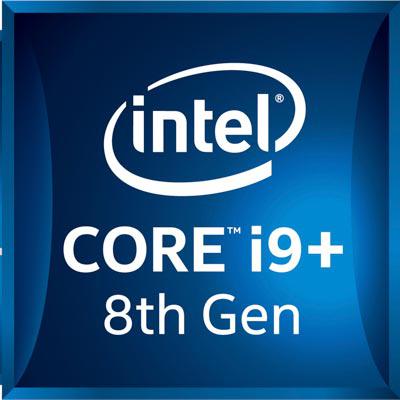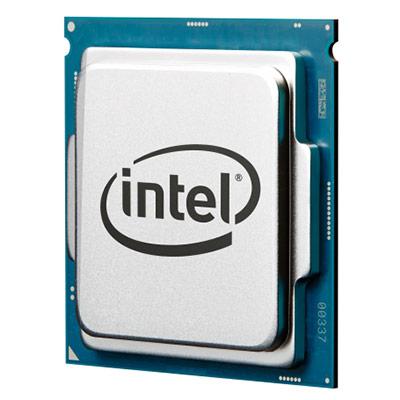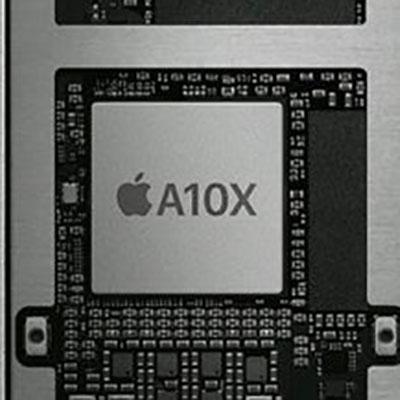7 Recent Intel Developments Partners Should Know About

New Brand, New Core CPUs, New Security Efforts
The first week of April ended up being a very eventful one for Intel, which unveiled new versions of its eighth-generation Core processors, its plan to sell industrial Internet of Things subsidiary Wind River and an update on how the company plans to tighten security. Intel also said this week that it had scored a major victory for its Programmable Solutions Group with Dell EMC and Fujitsu adopting the company's reprogrammable chips in their server lineups. In the following slides, we rounded up seven recent Intel developments channel partners should know about.

Intel's New Channel-Friendly Brand For Core CPUs
Intel made a few big announcements for its eighth-generation Core processors last week, including the launch of a new brand that promotes the bundling of the i5, i7 and i9 CPUs with the performance-boosting Optane memory module. The new branding slightly modifies the processor names with a plus sign: i5+, i7+ and i9+. Kent Tibbils, vice president of marketing of Fremont, Calif.-based ASI, told CRN that he expects this new brand will create new interest for customers and help push PC channel sales.

New Eighth-Gen CPUs Bring More Power To Laptops
In addition to the new Core brand, Intel also said that eighth-generation Core i5, i7 and i9 processors are available to laptops for the first time. The company said the i9 is the first mobile Intel CPU to come with six cores and 12 threads, making it the "highest-performance laptop processor Intel has ever built." The company also unveiled the availability of eighth-generation Core processors for the vPro platform for enterprises, as well as a new set of 300-series motherboards. Both moves mean partners will have even more new Core products to sell.

Intel Reveals Plans To Sell Wind River
Intel said last week it is selling industrial Internet of Things software provider Wind River to private equity firm TPG Capital for an undisclosed amount. While IoT has been a strategic priority for Intel, the company said the deal was "designed to sharpen our focus on growth opportunities that align to Intel's data-centric strategy." A source close to Intel told CRN that Wind River represented a small percentage of Intel's IoT Group revenue, which grew 20 percent year over year to $3.2 billion last year. Tom Lantzsch, Intel's IoT head, said the company expects the transition to be seamless for customers and partners that are shared with Wind River.

Intel Boosts Internal Security Efforts
In a blog post last Friday, Intel gave more details on its new Product Assurance and Security Group, which is "designed as a center of security excellence — a sort of mission control — that looks across all of Intel." Leslie Culbertson, who was appointed the leader of the group in January, said the group's task is looking "longer-term at the evolving threat landscape and continuously improving product security in the years ahead." As part of that effort, the group has centralized its best security talent while also ensuring that product security experts are embedded throughout the organization. Culbertson said Intel will look for a deeper collaboration with researchers, security experts and industry members for a more proactive approach to security. Wallace Santos, CEO of Maingear, a Kenilworth, N.J.-based systems builder and Intel partner, told CRN that Intel's new security plans fall in line with what the company has been telling him. " "For us, we think Intel handled it properly," he said of Intel's overall response to the Meltdown and Spectre vulnerabilities that first prompted the company to take stronger security measures.

Dell EMC, Fujitsu Adopt Intel's FPGA Chips
Intel scored a win for its Programmable Solutions Group when the company said Wednesday that Dell EMC and Fujitsu are adopting the company's reprogrammable chips in their server lineups. The company said this marks the first major use of the field-programmable gate array (FPGA) chip "to help speed up mainstream applications for the modern data center." This also helps validate Intel's $16.7 billion acquisition of Altera, which was completed in 2015 to harness the company's reprogrammable chips for high-end computing. Intel said its FPGA chips, which are programmable after manufacture, provide the right balance for boosting both performance and power efficiency at levels that modern data centers require. Michael Goldstein, president and CEO of LAN Infotech, a Fort Lauderdale, Fla.-based cloud services provider, told CRN that Wednesday's news signals companies like his to take note. "If the big players are looking at it, this is something that will draw our attention," he said.

Intel Stops Patching Some Older CPUs
After releasing microcode updates for Intel processors from the last nine years to protect against the Meltdown and Spectre vulnerabilities, the company revealed last week that it would not provide software patches for certain older CPUs. Intel said it made the decision for several reasons, including limited ecosystem support and customer feedback. However, Bob Venero, CEO of Future Tech, a Holbrook, N.Y.-based solution provider and Intel partner, told CRN that the move would likely hurt smaller companies that don't update their systems as often.

Apple Plans To Ditch Intel CPUs In Macs
After using Intel's x86 processors in Mac computers since 2006, Apple is reportedly planning to ditch Intel's CPUs in favor of making its own in-house processors for Macs, starting as early as 2020. Bloomberg reported that this plan is part of an early stage initiative code-named Kalamata that aims to create greater integration between all of Apple's devices. According to a Bloomberg analysis, Apple accounts for roughly 5 percent of Intel's annual revenue. Bacem Moussa, CEO of Boston-based solution provider TSP, told CRN that while the revenue impact may not be big for Intel, "the psychological impact would be big."